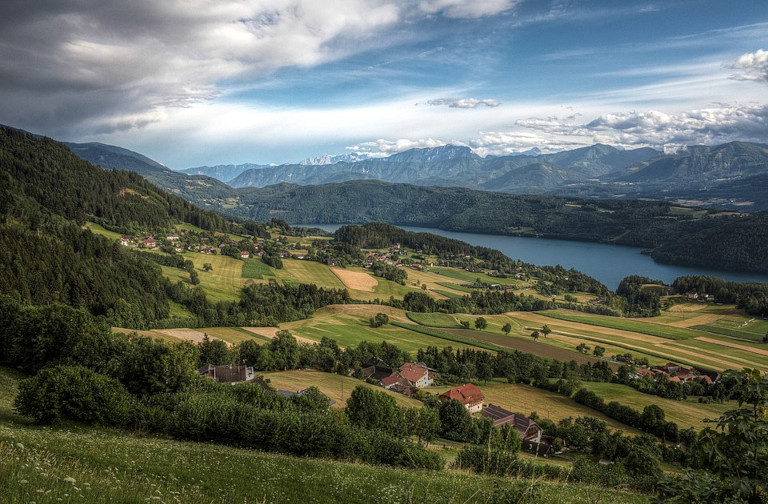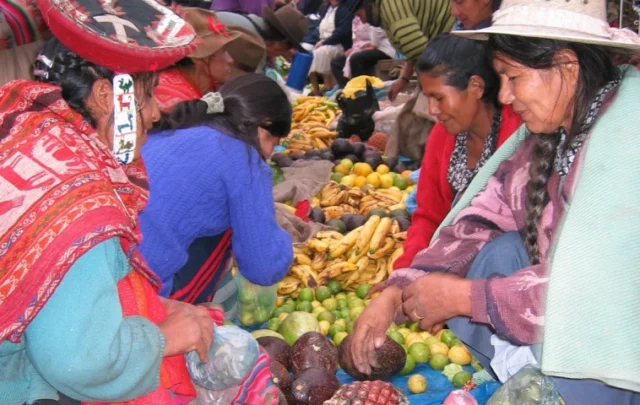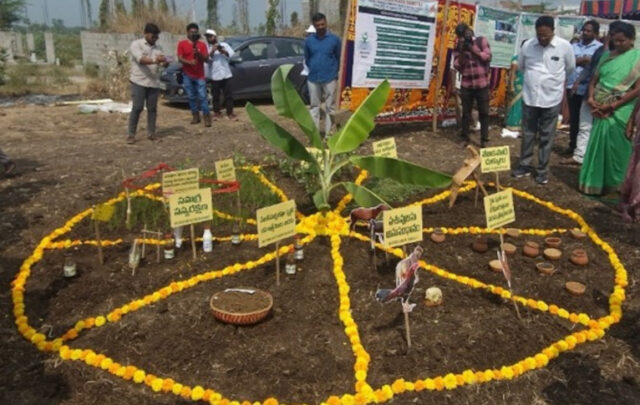I mentioned the new Root and Branch Collective – described here and here – in my last post and said I planned to write something about it. So here goes.
Why write about it? Well, partly because the group (henceforth I’ll call it RBC) has a lot to say about agrarian localism, which is kinda my bag.
Also because RBC invokes influence from various Marxist and post-Marxist frameworks (in their words ‘critical agrarian studies, legal geography, anti-colonial Marxism, postcolonial studies and world systems theory’). These frameworks have also influenced me, and still do, particularly in trying to get to grips with how we’ve got into the present mess. But less than before, and less as a means for getting out of it. So it interests me to place my waning commitment to such frameworks against a statement of their value.
My primary influences for navigating out of the present mess these days are distributism, civic republicanism, agrarian populism and Thomism, or maybe immanentism … which not a lot of people have heard of. One reason not a lot of people have heard of them is that we’re so caught up in mainstream modernist politics like neoliberalism and socialism that they get no airtime, which I think is regrettable. My forthcoming book Finding Lights in a Dark Age tries to prepare some ground for these non-modernist and non-socialist but potentially somewhat leftwing-ish positions. So it’s interesting to consider RBC’s intervention, with its more direct modernist-socialist lineage, in that light.
So … the RBC piece on Substack authored by Adam Calo and Alex Heffron begins by referring to a book called Agrarian Dreams which, they say, “effectively pumped the breaks (sic) on the vision of a food system grounded in localized organic production”, due to such things as exploitative labour relations and capitalist property regimes in the sector.
The piece continues, “Over a decade later, the popular debate about sustainable food has stubbornly refused to advance beyond a reductionist framing of artisanal localism versus techno-utopian productivism”. This debate, it says, has focused on land use techniques rather than the politics of land. Then it refers to my ‘debate’ with George Monbiot (the ‘debate’ that never really was … though I’m still hoping George will at least recant his erroneous energy figures someday). Calo and Heffron say Monbiot sets up a “bland binary between a romantic view of inefficient niche production via localism versus the “serious” work of feeding the world with the best possible technologies. As if we have to choose between a world of an anachronistic peasantry scratching away in the dirt and a half-earth utopia”.
There’s quite a lot to unpack in all this. Are Calo and Heffron saying that Monbiot and I are in dispute only over techniques? As I see it, Monbiot’s position is intensely – if often rather implicitly – focused on the politics of land. His land politics are bad ones in my opinion, which is why I felt the need to challenge him. But there’s no question that our ‘debate’ is about land politics. It’s also not clear to me whether Calo and Heffron agree with Monbiot that localist production is ‘inefficient’ or ‘niche’. If so, that opens a huge can of worms.
But leaving all that aside, the last sentence I quoted (‘as if we have to choose…’) is, implicit anti-peasantism apart, indeed pretty much what I’ve been arguing for years. We don’t in principle face a stark choice between the latest techno fads in corporate agriculture or miserable hand-to-mouth agrarian toil. A plethora of other options exists.
I’m less inclined to make this point these days, because the potentially catastrophic crises now knocking on the door threaten to make miserable agrarian toil look almost like a best-case scenario. But in principle, yes agreed, we do not face a bald dualism between ‘inefficient niche production’ and the ‘best technologies’ (not that there’s anything ‘best’ or particularly good about bacterial protein powder and other such corporate wheezes).
There are some further puzzles in Calo and Heffron’s opening gambit. First, anyone who sets themselves up as a commercial food or fibre producer in the Global North, or indeed in much of the Global South, with any pretensions toward ecological integrity and just rewards to labour will inevitably be crushed in the capitalist maw of prices – food prices, energy prices, land and housing prices, agri-plastic and agri-chemical prices, labour prices, political patronage prices – which all conspire against them. The whole drift of agroecology is more people doing more work on the land. The whole drift of contemporary capitalism is less people doing less work on the land, with a range of unsustainable inputs substituting for their labour. The problem here is not localized organic production and the people involved in it. The problem is capitalism – and it’s this structural problem which should surely be front and centre of any critical appraisal of the food system, not a critique of organic farming or agrarian localism.
Most of us who’ve tried our hand at local, agroecological, commercial food production give up sooner or later in the face of its desperate economics and try to decommodify our practices as far as we can – which, in a broken political economy, often isn’t far. The kind of frameworks I espouse argue that collectively we need to push that decommodification much further. Generally, I find that Marxist-influenced frameworks aren’t really on board with this, evincing instead a fatal attraction to wage labour and commodity production, albeit somehow shorn of their exploitive, capitalist edge. These differing emphases might be an interesting arena for debate.
Another puzzle is the ambiguous language from Calo and Heffron in phrases like ‘romanticized agrarian localism’ and ‘idealization of the bucolic farmer’. I agree that romanticized agrarian localism and the idealization of the bucolic farmer are problematic. I advocate instead for non-romanticized agrarian localism and non-idealization of non-bucolic farmers. Are Calo and Heffron arguing these things aren’t possible – that agrarian localism is inherently romanticised and the kind of farmers localists wish to promote are inherently idealized and bucolic? I’m not sure, but if so it could be interesting to hear why.
(An aside on that front: I’d like to see more discussion of what people understand by the word ‘romantic’ when they use it pejoratively, and what their understanding of the Romantic intellectual tradition is. In my opinion, while it’s not good to be romantic – except between consenting adults – it’s not inherently bad to be Romantic).
But let me move onto the core RBC principles included in Calo and Heffron’s piece. I wouldn’t myself opt for the kind of language the RBC uses in describing them (but, hey, they’re academics, and as an ex-academic I can sympathise). Still, happily, I find myself mostly in agreement with them. Let’s run through the principles briefly. (Note that for the most part I’m just going to paraphrase parts of them and put my own gloss on them – if you want the full picture verbatim, you’ll have to read them for yourself here. My paraphrases or direct quotes are in normal typeface and my commentary is in italics, by the way).
- First up, we need radical land reform. (Yes! And, I’d add, specifically land widely distributed to local agrarians, a large group of people that somehow needs to be quickly conjured into existence because…
- We’re in a time of ‘catastrophic crisis’. (Quite so). So we need some bloody action. Fast.
- The recent and not so recent history of land use has been one of colonialism, exploitation and expropriation – in respect of people, and in respect of nature – and we can only understand this in terms of the links between people, other organisms and materials in different places, including urban ones. (Yes, agreed. But I’d add that this colonialism goes down almost unfathomably deep historically and ecologically. Which is why I find it hard to imagine any long-term non-colonial human ecology which is not fundamentally local and largely rural in its orientation and in its engagement with nature. By that token, I think I have to be open to the possibility that ultimately agrarianism itself is a form of unsustainable colonialism. But for now I feel it’s worth making the case for agrarian localism as a better and less colonial option than agro-industrial globalism).
- There are biophysical limits, but let’s not opt for Malthusianism, populationism or engineered asceticism. (I think I’d agree with that, depending on what ‘engineered asceticism’ means. ‘Overshoot’ however… well, I’ll discuss that in another post soon).
- ‘We consider the transformation of the way we feed and otherwise provision ourselves from the land towards abundance, justice and liberation to be possible’. (I’d substitute ‘sufficiency’ for ‘abundance’ and I can’t honestly say whether it’s possible in this time of ‘catastrophic crisis’ – but I believe it’s worth aiming for.)
- ‘This involves political-economic transformation’ (Yes!)
- ‘institution building’ (I’d say culture building more generally, but yes)
- and ‘struggle over state power’ (for me, it’s largely struggle against state power, but not entirely, so a probable yes).
- It also involves ‘abolishing the systems of violence and oppression that constrain our abilities to build a world in common that is not classed, raced, gendered or otherwise structured by oppression’. (It’s hard to disagree with abolishing systems of violence and oppression – so yes – but I find this sentence problematic for reasons I’ll come to. These probably go to the heart of my differences with the RBC project).
- We’re against ecomodernism. (Great!) And we’re committed to unearthing land-based revolutionary histories and traditions that have been buried under narratives of civilisational progress and industrialisation. (Also great. Though for my part I’m also committed to unearthing non-revolutionary histories and traditions that have been likewise buried. In fact, I suspect the non-revolutionary ones are more important, and I question the over-emphasis in this kind of politics on revolution (surely only a means to an end – but what end?) and the implicit idea of revolution as a radical break with the past that supposedly rights its wrongs. Unearthing histories of ‘survivance’ (as described by Gerald Vizenor – see below … I hope to say more about this soon) seems to me more to the point. Unearthing them where people want them to be unearthed, that is – where they don’t, I’m not really sure what the role of scholarship is. Keeping quiet, I guess. Indeed, it’s worth being aware of how greatly the odds are stacked against both revolutionary and non-revolutionary histories and traditions that don’t emphasise civilisational progress and industrialisation, and how little power most people have in all this. Commitment to a probable lost or at least only partly realisable cause calls for a bit of humour, irony and self-deprecation, which tbh I find a bit lacking in the RBC’s intervention).
- Technologies aren’t just technical, but also always social and political – so we have choices over them. (Agreed. I’d proceed from there to say that it’s therefore okay to be Romantic, though not romantic, and it’s okay to be Luddite, though not necessarily to go round just smashing things up that we don’t like).
- ‘We acknowledge the incipient possibility of fascism associated with both techno-optimistic, eco-modernist and regressive, neo-Chayanovian visions of rural life’. (Whoa, hold on a minute! Chayanov, in case you don’t know, was a Russian agricultural economist. Three other things about him: (1) He did detailed empirical studies of Russian peasant economies; (2) He argued – in the briefest of nutshells – that Russian peasants were happy to stop working when they’d produced enough for themselves; (3) He was murdered in Stalin’s gulag, partly because these ideas about peasant work regimes weren’t ‘progressive’ enough to suit Stalin’s version of Marxism. As I see it, there’s plenty of scope for critiquing aspects of Chayanov’s thinking but ‘regressive, neo-Chayanovian visions’ …? Sheesh, can’t we let the dead lie? If you claim a lineage from Marx and want to decry violence and authoritarianism I think you need to tread carefully … glasshouses, stones, and all that … and I’d suggest you shouldn’t talk about ‘regressive’ rural visions. Maybe it’s not Chayanov so much as the ‘neo-Chayanovs’ who are the RBC’s target? Jan Douwe van der Ploeg’s Peasants and the Art of Farming: A Chayanovian Manifesto maybe? In truth, Chayanov influenced a wide range of thinkers under the broad umbrella of agrarian populism – in addition to Ploeg, for example Teodor Shanin, Paul Richards, James Scott, Robert Netting, Marshall Sahlins, and I’d venture to say Glenn Davis Stone whose excellent book The Agricultural Dilemma RBC invokes apparently positively. None of them are remotely fascists, not even incipiently. Or are we talking Ringing Cedars? A different kettle of fish, perhaps to be discussed another time, but probably not best analysed through a ‘regressive’ or ‘fascist’ lens? Another deferred discussion: in my view, fascism stands alongside authoritarian statist communism and neoliberalism as three unholy and somewhat connected ‘progressive’ endpoints of modernist politics. For now, I’ll just suggest a simpler and less divisive alternative to this principle: ‘We acknowledge the incipient possibility of authoritarianism, scapegoating and violence occurring in the name of political philosophies of every kind. We aim to oppose this wherever it occurs’).
- We need to own our own shit (and in particular we need to take responsibility for generating our own livelihoods locally. Agreed).
So … I have a lot in common with the RBC project, but also some differences. And here, most likely, is another difference: in the comments below the RBC Substack piece – hi Gunnar, and … is that you Joel? (thanks…) – there was an interesting little comment from Adam Calo, “Yet, I do think there is a broader blindspot amongst those who associate with a revitalized localism that relates to the ideology of the “good farmer” and its related structures of the land owning family. I think this is important terrain to struggle with.”
I’m not entirely sure what Adam means about the ideology of the good farmer, but I agree such an ideology is likely to be problematic – except perhaps in a rather specific sense that I hope to discuss in another post. I do, however, believe that an ideology – or at least a practice and a tradition – of good farming, good ecology, and good livelihood-making is essential. The catastrophic crisis that the RBC highlights seems to me to stem largely from their lack.
Things get stickier around the question of ‘the land-owning family’. Every enduring human ecology I can think of has involved the collective allocation of restricted rights of appropriation to small groups of people evincing structured mutualisms – or, in plainer English, it’s involved landowning families. More specifically, it’s involved a lot of families, each owning only a little land. For sure, this is set within wider collective relationships (often also involving kinship, or family, albeit not exclusively so) that both constrain and enable family-level organisation. But the landownership bit and the family bit remain important. I’d argue that socialist-leaning attempts to do away with this structuring of local human ecology – for example, in Russia, in China, in Vietnam, in Israel, in Tanzania, in Nicaragua, by the MST in Brazil, and so on – generally haven’t worked out too well, and have often caused a lot of misery along the way.
Here, we come to the radical individualism within socialism, which it shares with its capitalist adversary – each, despite their apparent opposition, different versions of the same modernism and its vaunting of the sovereign individual. The idea that socialism, too, is individualist perhaps runs counter to the collective/communal vibes accompanying the way it’s normally represented. The clue is in its antipathy to family, religious, localist and other identities that claim people’s collective allegiance and potentially limit their individual self-realisation. In strong versions of socialism, the state or the socialist political community is the only permissible collective allowed to mediate the relationship between effectively disembedded sovereign individuals and collective identity. This is why I think the language in the core principle I mentioned earlier around building ‘a world in common that is not classed, raced, gendered or otherwise structured by oppression’ is a bit tricksy. Taking, for example, gender or ‘class’ in its widest sense, such identities clearly have been structured by oppression, and I endorse the need to oppose that. But that’s not the same as abolishing those identities themselves, apparently as something unbecoming of the liberated individual.
A lot of non-modern societies have found subtler ways of accommodating the desire of some people to abolish extant social identities without taking the kind of totalising and authoritarian abolitionist stance characteristic of modernism – abolish all identities that have ever been structured by oppression or local exclusion to leave purified individuals in relation to a purified state! I disagree. Question them, for sure. Mitigate their negative consequences. Seek to generate alternatives. So yes, I believe Adam is right that the landowning family is important terrain to struggle with. But not necessarily to struggle against. Here, I think socialism reveals a blindspot of its own in its modernist-individualist tendency to proceed too hastily from the former to the latter.
Tyson Yunkaporta writes, “Aboriginal people don’t have to choose between the individual and the collective, left and right, because we are both at once. We are unique individuals with no boss, bound in dense and complex systems of relational obligation” (Right Story, Wrong Story p.41) … and a lot of that relational obligation manifests in the form of kinship, or family, and access to knowledge and resources that are not universally shared (i.e. private property). Yet we don’t seem to be able to take this both-and thinking in our stride in modernist society, preferring all-or-nothing dualities. If socialist approaches to agrarianism, or economic life generally, offer non-family and non-landownership models for people who want to live in that way, I’m absolutely supportive. The crunch for me comes if those models are imposed society-wide, under the guise of fairness or some other criterion which does not adequately justify such a totalising position. In that case, I’m opposed. Given how far away we are from such socialist scenarios currently in a country like Britain, perhaps it’s a bit academic. But I do think it’s worth considering and learning from the models and the mistakes of the past.
In summary, the kind of distributist and agrarian populist or localist approaches that influence me have a lot in common with the RBC approach – much more in common, I think, than each of them has with mainstream political positions. But there are some points of difference. While strongly socialist approaches are more radical in means than my position (revolutionary politics, family abolition etc.), I think they’re usually less radical, less root and branch, in their ends (dallying with statism, colonial extractivism, the self-creation of the modernist individual etc).
These differences could make for an interesting debate, but I’m probably not going to debate them. I’ve had some good and friendly interactions with people espousing more straightforwardly Marxist/modernist positions than me. But also some bad and unfriendly ones, and life’s too short for that. Still, we need some radical change for sure, so – caveats above excepted – I wish RBC well in trying to effect it.
Current reading: Gerald Vizenor (ed) Survivance: Narratives of Native Presence






